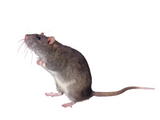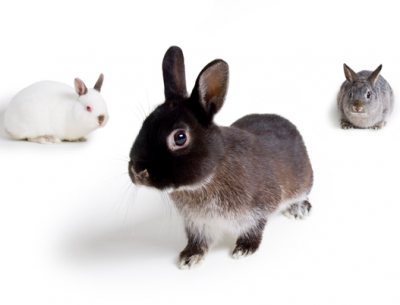Animal testing alternatives developed for cosmetics
two biochips have been developed that could eliminate the need for
animal testing on cosmetic ingredients.
Animal testing of cosmetics ingredients in Europe will be banned from 2009 and last month EU Science and Research Commissioner Janez Potocnik criticized industry and academia for failing to commit sufficient resources to the creation of safe and effective alternatives.
A team of researchers from Rensselaer Polytechnic Institute, the University of California at Berkeley and Solidus Biosciences has developed two biochips that can be used together to test toxicity in the early stages of product development.
The scientists behind the discovery, published in the early online edition of the Proceedings of the National Academy of Sciences (PNAS) , claimed the use of the biochips presented several considerable advantages over animal testing.
Waste may be avoided because the biochips can be used early in the formulation process before significant time and money has been invested and the technology is low-cost and even more accurate than animal testing, claimed the researchers.
The team's most recent development is the DataChip which is a biochip comprised of 1,080 three-dimensional human cultures, which they claim closely represent the structure of cell arrangements in the human body.
The researchers said the DataChip allows for the fast screening of potentially toxic chemicals and drugs on different types of human cells.
The DataChip can be used alongside the MetaChip, which mimics the metabolic reactions of the human liver.
The scientists said this function is important because an otherwise benign chemical can become highly toxic when metabolized by the liver.
"We developed the MetaChip and DataChip to deal with the two most important issues that need to be assessed when examining the toxicity of a compound - the effect on different cells in our body and how toxicity is altered when the compound is metabolized in our bodies," said co-lead author Jonathan Dordick.
As a total ban on animal testing in cosmetics approaches fast, the cosmetics industry is looking out for safe, affordable and effective alternatives.
However, EU Science and Research Commissioner Janez Potocnik recently criticized the industry, academia and regulators for failing to respond to the challenge and called on stakeholders to share information and commit greater resources to the area.
The development of the MetaChip and DataChip is a further step towards a smooth transition to cosmetics testing that is safe and animal-free.
"Obviously cosmetics need to be safe, and ensuring the safety of new compounds without testing them on animals presents a new challenge to the industry, especially as the number of compounds increases," said co-lead author Douglas Clark.
"These chips can meet this challenge by providing comprehensive toxicity data very quickly and cheaply."
Source: Rensselaer Polytechnic Institute (2007, December 17).
Biochip Mimics The Body To Reveal Toxicity Of Industrial Compounds.






















